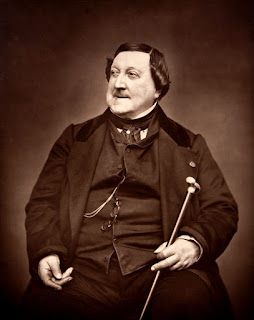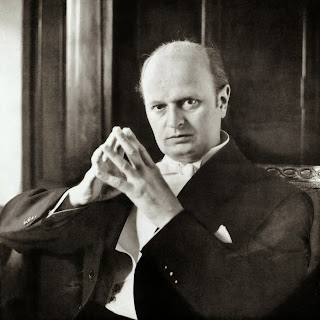Information
Composer: Giuseppe Verdi; Gioachino Rossini
CD1:
CD1:
- (01) Verdi - Messa da Requiem: REQUIEM
- (02-10) Verdi - Messa da Requiem: DIES IRAE
- (11) Verdi - Messa da Requiem: OFFERTORIO
- (12) Verdi - Messa da Requiem: SANCTUS
- (13) Verdi - Messa da Requiem: AGNUS DEI
- (14) Verdi - Messa da Requiem: LUX AETERNA
- (01) Verdi - Messa da Requiem: LIBERA ME
- (02) Rossini - Stabat Mater: 1. Stabat Mater
- (03) Rossini - Stabat Mater: 2. Cujus animam
- (04) Rossini - Stabat Mater: 3. Quis est homo
- (05) Rossini - Stabat Mater: 4. Pro peccatis
- (06) Rossini - Stabat Mater: 5. Eja mater
- (07) Rossini - Stabat Mater: 6. Sancta mater
- (08) Rossini - Stabat Mater: 7. Fac ut portem
- (09) Rossini - Stabat Mater: 8. Inflammatus et accensus
- (10) Rossini - Stabat Mater: 9. Quando corpus
- (11) Rossini - Stabat Mater: 10. In sempiterna saccula
VERDI:
Maria Stader, soprano
Oralia Dominguez, mezzo sopano
Gabor Carelli, tenor
Ivan Sardi, bass
ROSSINI:
Maria Stader, soprano
Marianna Radev, alto
Ernst Haefliger, tenor
Kim Borg, bass
RIAS Kammerchor
Chor der St. Hedwig's-Kathedrale
Radio-Symphonie-Orchester Berlin
Ferenc Fricsay, conductor
Date: 1954 (Rossini), 1960 (Verdi)
Label: Deutsche Grammophon
----------------------------------------------------------------------------
An interpretation of tragic force and lyrical beauty.
When I first received this set I imagined it was a reissue of Fricsay's DG account made in the early 1950s (nla), perfectly respectable and extremely accurate, but in fact this one, issued to mark the 75th anniversary of Fricsay's birth, dates from late 1960 when the conductor was already suffering from the disease that killed him. It was to prove to be his final performance of the piece. I don't think it's fanciful to feel in this intensely dramatic and immediate reading that the conductor fully realized his own mortality. At any rate it's an interpretation of tragic force and lyrical beauty that eclipses most of its rivals. Fricsay was here working with a choir and orchestra entirely devoted to him and, as in the Shaw performance on Telarc/Conifer such familiarity pays huge dividends in terms of unified thought. Then, the circumstances of a live occasion seem to infect everyone concerned with a feeling of urgency.
Fricsay's tempos, though sometimes on the deliberate side (the opening Kyrie and the "Recordare" for instance), are well-judged and properly adjusted one to another, and he moulds the whole work with an enviable command of line. The discipline of both singing and playing are quite remarkable, and the tone of both sectors is as warm and deeply eloquent as on any other performance of the thirty or so I know. Indeed, Verdi would surely have been delighted at the keenness and singing line produced by the strings throughout. The balance between the sections of the orchestra and between the choir and orchestra is also ideal on this excellent mono recording.
The solo performances, forwardly recorded, are impressive. Oralia Dominguez sings with strength of voice and inner conviction, with a subtle use of rubato and dynamic variation. Gabor Carelli, Toscanini's Dr Caius and a Gigli pupil, is a tenor of great sensitivity. His account of both the "Ingemisco" and "Hostias" are Gigli-like in their sweetness of accent and freedom of style. He and the bass Ivan Sardi are Hungarian by birth like their conductor, but both sound convincingly Italianate. Sardi's tone is firm and vibrant, and his line in "Oro supplex" exemplary. Stader, who appeared in Fricsay's earlier version, was also Hungarian born but brought up and trained in Switzerland. Her voice, like Schwarzkopf's on the Giulini set (EMI) was not made by nature for this music, and she often seems under some stress, but her conviction cannot be denied. I was worried only by one or two moments of flatness.
You won't find a more beseeching, broadly phrased account in the catalogue; those of the Requiem by Muti (EMI) and Abbado (DG) don't evince the same inevitability of utterance and Karajan (also DG) sounds dull beside Fricsay. The Shaw version is of course superior in terms of sound alone, but his performance, appealing as it is, wants the sheer urgency of this one, inspired by a very great conductor. Its only peer is the Giulini, and the choral recording there, though in stereo, hasn't the breadth of that on the Fricsay. Hear this set if you can-and you will surely be persuaded of its merits. [11/1989]
-- Alan Blyth, Gramophone
More reviews:
https://www.gramophone.co.uk/review/verdi-requiem-rossini-stabat-mater
https://www.amazon.com/Guiseppe-Verdi-Requiem-Gioacchino-Rossini/dp/B000001GLA
When I first received this set I imagined it was a reissue of Fricsay's DG account made in the early 1950s (nla), perfectly respectable and extremely accurate, but in fact this one, issued to mark the 75th anniversary of Fricsay's birth, dates from late 1960 when the conductor was already suffering from the disease that killed him. It was to prove to be his final performance of the piece. I don't think it's fanciful to feel in this intensely dramatic and immediate reading that the conductor fully realized his own mortality. At any rate it's an interpretation of tragic force and lyrical beauty that eclipses most of its rivals. Fricsay was here working with a choir and orchestra entirely devoted to him and, as in the Shaw performance on Telarc/Conifer such familiarity pays huge dividends in terms of unified thought. Then, the circumstances of a live occasion seem to infect everyone concerned with a feeling of urgency.
Fricsay's tempos, though sometimes on the deliberate side (the opening Kyrie and the "Recordare" for instance), are well-judged and properly adjusted one to another, and he moulds the whole work with an enviable command of line. The discipline of both singing and playing are quite remarkable, and the tone of both sectors is as warm and deeply eloquent as on any other performance of the thirty or so I know. Indeed, Verdi would surely have been delighted at the keenness and singing line produced by the strings throughout. The balance between the sections of the orchestra and between the choir and orchestra is also ideal on this excellent mono recording.
The solo performances, forwardly recorded, are impressive. Oralia Dominguez sings with strength of voice and inner conviction, with a subtle use of rubato and dynamic variation. Gabor Carelli, Toscanini's Dr Caius and a Gigli pupil, is a tenor of great sensitivity. His account of both the "Ingemisco" and "Hostias" are Gigli-like in their sweetness of accent and freedom of style. He and the bass Ivan Sardi are Hungarian by birth like their conductor, but both sound convincingly Italianate. Sardi's tone is firm and vibrant, and his line in "Oro supplex" exemplary. Stader, who appeared in Fricsay's earlier version, was also Hungarian born but brought up and trained in Switzerland. Her voice, like Schwarzkopf's on the Giulini set (EMI) was not made by nature for this music, and she often seems under some stress, but her conviction cannot be denied. I was worried only by one or two moments of flatness.
You won't find a more beseeching, broadly phrased account in the catalogue; those of the Requiem by Muti (EMI) and Abbado (DG) don't evince the same inevitability of utterance and Karajan (also DG) sounds dull beside Fricsay. The Shaw version is of course superior in terms of sound alone, but his performance, appealing as it is, wants the sheer urgency of this one, inspired by a very great conductor. Its only peer is the Giulini, and the choral recording there, though in stereo, hasn't the breadth of that on the Fricsay. Hear this set if you can-and you will surely be persuaded of its merits. [11/1989]
-- Alan Blyth, Gramophone
More reviews:
https://www.gramophone.co.uk/review/verdi-requiem-rossini-stabat-mater
https://www.amazon.com/Guiseppe-Verdi-Requiem-Gioacchino-Rossini/dp/B000001GLA
----------------------------------------------------------------------------
Giuseppe Verdi (9 or 10 October 1813 – 27 January 1901) was an Italian composer of operas. Verdi came to dominate the Italian opera scene after the era of Bellini, Donizetti and Rossini, whose works significantly influenced him, becoming one of the pre-eminent opera composers of the late nineteenth century. His operas remain extremely popular, especially the three peaks of his 'middle period': Rigoletto, Il trovatore and La traviata, and the bicentenary of his birth in 2013 was widely celebrated in broadcasts and performances.
https://en.wikipedia.org/wiki/Giuseppe_Verdi
https://en.wikipedia.org/wiki/Giuseppe_Verdi
***
Gioachino Rossini (29 February 1792 – 13 November 1868) was an Italian composer who wrote operas, as well as some sacred music, songs, chamber music and piano pieces. Rossini had been the most popular opera composer in history, and he was one of the most renowned public figures of his time. A tendency for inspired, song-like melodies is evident throughout his scores, earning him the nickname "The Italian Mozart". A few of Rossini's operas remained popular throughout his lifetime and continuously since his death; others were resurrected from semi-obscurity in the last half of the 20th century.
***
----------------------------------------------------------------------------
Ferenc Fricsay (9 August 1914 – 20 February 1963) was a Hungarian conductor. Fricsay was born in Budapest and studied music under Béla Bartók, Zoltán Kodály, Ernst von Dohnányi, and Leo Weiner. He was known for his interpretations of the music of Mozart and Beethoven, as well as that of his teachers Bartók and Kodály. From the 1950s until his death, He spent much of his time in Germany as music director of the Bavarian State Opera (1956–1958) and as conductor of the RIAS Symphony Orchestra, the Deutsche Oper Berlin and the Berlin Philharmonic, recorded for the Deutsche Grammophon record label.
http://en.wikipedia.org/wiki/Ferenc_Fricsay
http://en.wikipedia.org/wiki/Ferenc_Fricsay
FLAC, tracks
Links in comment
Enjoy!





This comment has been removed by the author.
ReplyDeleteLink does not exist.
ReplyDeleteChoose one link, copy it to your browser's address bar, wait 5 seconds, then click on 'Skip Ad' (or 'Continue') (top right).
ReplyDeleteIf you are asked to download anything, IGNORE, only download from file hosting site (mega.nz).
If MEGA shows 'Bandwidth Limit Exceeded' message, try to create a free account.
CD1
http://aclabink.com/oK5
or
https://ouo.io/8VkpEF
or
http://uii.io/WNKGr
CD2
http://aclabink.com/oK6
or
https://ouo.io/dsJYiy
or
http://uii.io/rFu2pn
¡Muchas gracias, Ronald Do!
ReplyDelete